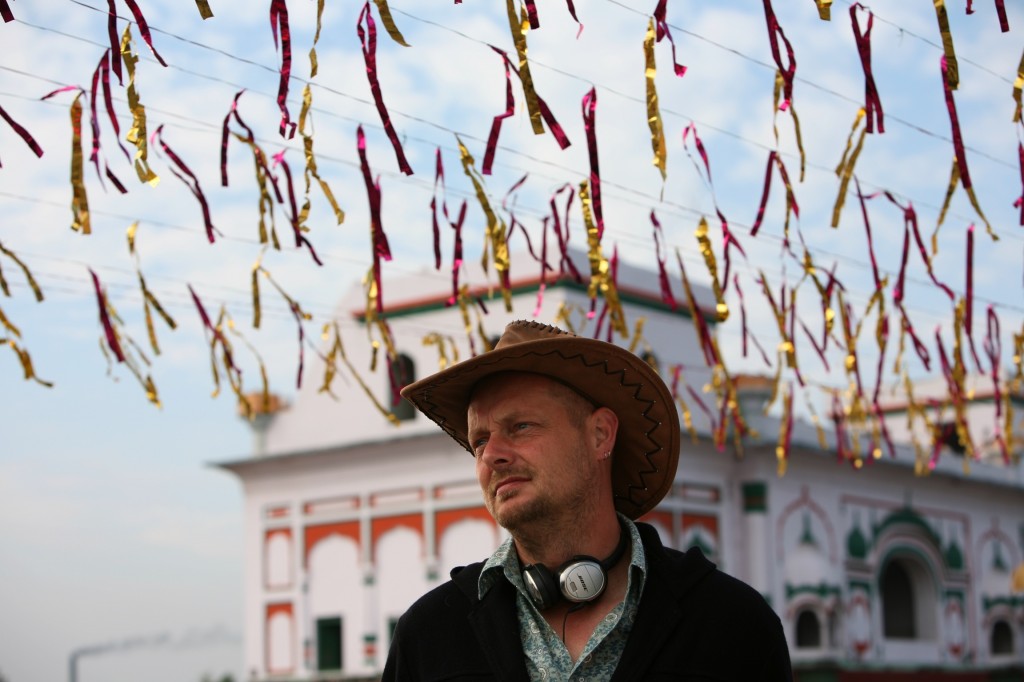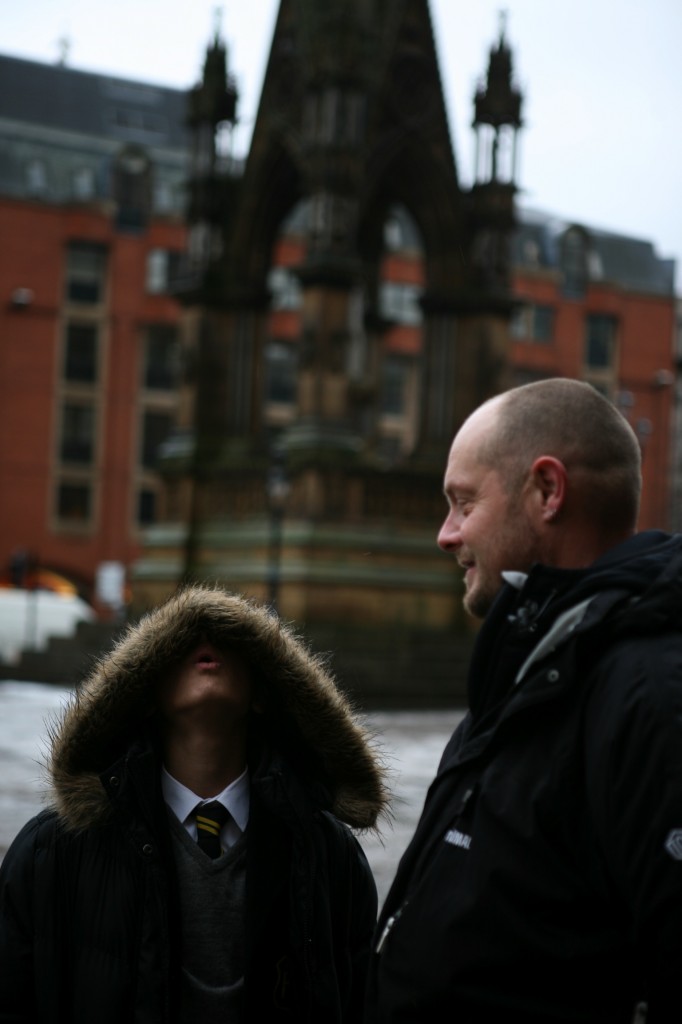Film director Andy De Emmony explains how he made the transition from being a sculptor to working in cinema.
 Unknown to many, film director Andy De Emmony was completing an arts degree at Loughborough University and originally aspired to be a sculptor before he started working with Spitting Image, who sent him to film school.
Unknown to many, film director Andy De Emmony was completing an arts degree at Loughborough University and originally aspired to be a sculptor before he started working with Spitting Image, who sent him to film school.
“From there I met a lot of comedy people and did a lot of sitcoms and comedy shows after that. Red Dwarf and Father Ted writers were both people I knew from Spitting Image days.”
The Leicester-born director is currently working on a WW1 period film about a magazine that was published in the trenches, called The Wipers Times. The crew are currently in Belfast shooting in a big country house. “We’re shooting for locations like The Ritz and those London locations and then staff HQ. Because it’s an older house, most of the fittings work for the period and then in the garden we’re digging big trenches and dugouts, using special effects and bombs and battles, so it’s quite difficult. But then again my last film was about werewolves so that was also quite tricky.”
A typical day for the crew would involve shooting approximately five pages per day, which could be anything from one scene to 10 scenes. Andy begins his day with his actors rehearsing the scene they are about to shoot. The rest of the crew is then called in to watch the rehearsal, followed by a discussion with the cameramen about the shots and angles they will be using. Once the scene is complete, everything is repeated for the next one.
It can be quite intense, as he goes on to explain: “We shoot 12-hours days here. We all arrive an hour before the call on set and have breakfast here and then from beginning to end it’s a 12-hour day with an hour for lunch. Typically in the UK you do 11-day fortnights, where you work six days then 5 days right through to the end of the production.”
The 49-year-old works across commercials, television and cinema and speaking about some of his highlights, he said: “West is West was a strong one for me. I always loved the original film and I was a bit wary about doing a sequel, but in fact it did take those characters on another journey and another story, which I thought was worth telling.
“I then did a thing called Fantabulosa! With Kenneth Williams starring Michael Sheen. That was a very low budget television film which I really loved. There were a lot of inconsistencies and twists with very fascinating characters and Michael is a brilliant performer.”
And speaking about another particular highlight, Andy refers to a project called God on Trial. Set in Auschwitz, the television drama was about an evening where the Jews in one particular hut were told half of them would be dying the next day. With educated people liked judges and lawyers in the hut they decided to put God on trial. “We shot the whole thing in an intense week with actors and multi cameras, huge proportions of it were almost like a theatre play.”
Comparing the three platforms he works across, Andy explained that commercials are more about exercising the craft you’ve been taught and about telling much shorter stories. With film, you get to tell more epic single stories but they have to be commercially viable, whereas with television you can tell stories that aren’t necessarily going to draw a big audience in the cinema but are a bit more offbeat.
Which does he prefer? “I’ve always wanted to make films really and for me the cinema and that whole experience is the main thing. I enjoy everything but with cinema you get a little bit more time to explore the cinematic view, while television is more about close personal relationships and there isn’t much scope to indulge in the cinematic view in the same way.”
When asked if he had any difficulty starting out in his film career Andy said: “For me I had a very lucky break, but now it’s very competitive and definitely very hard to get through. I think story telling is always very key. Generally a lot of people now start with shorts. I only did a couple of shorts but it’s about telling an interesting story that engages the audience and allows people to engage with the characters.”
Advising aspiring filmmakers, the father of four said: “Now more than ever you can make stories for nothing with digital formats and laptops. The thing is to keep working on story telling. I think that’s the way to shine forward. Put shorts in film festivals, get them shown and if they are good people will progress forward. Though it’s hard and people find it tricky to breakthrough you can make things for nothing and get exposure. If you’re good you can rise very quickly.”



